03:37

China's restaurant and catering industry is now witnessing a gradual recovery as COVID-19 is receding and restrictions are being removed. After the ongoing coronavirus outbreak ruined the annual Spring Festival peak season for the catering sector, local dine-in places have reopened in Shenyang. However, it's not yet time to celebrate for most of these businesses as difficulties still lie ahead, and that include Xibei, a leading Chinese chain restaurant.
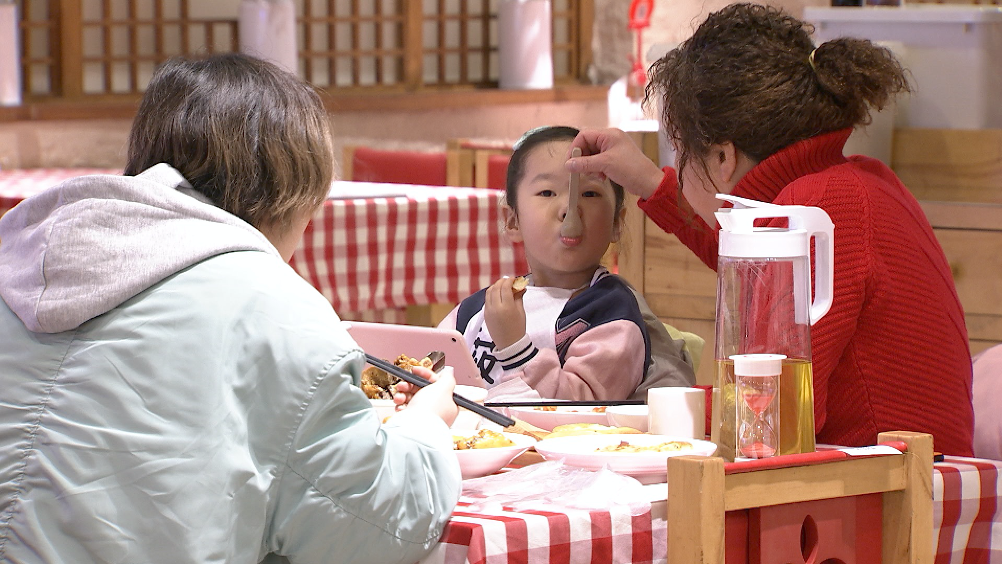
Customers dining at Xibei restaurant after it reopened. /CGTN
Customers dining at Xibei restaurant after it reopened. /CGTN
One of Xibei's branches in Shenyang has had a daily passenger flow of around 180, and a daily turnover of less than 30,000 yuan since it reopened on March 20. One of those customers told CGTN that they came together only to celebrate a friend's birthday. They are still being very cautious and rarely dine out these days unless it's a special occasion. Chen Miaomiao, manager of the restaurant, also admitted that she thought it'd take time to see an increase in consumption. "The global pandemic is not over and people earn less during the lockdown. So they are still unwilling to eat out," Chen explained.
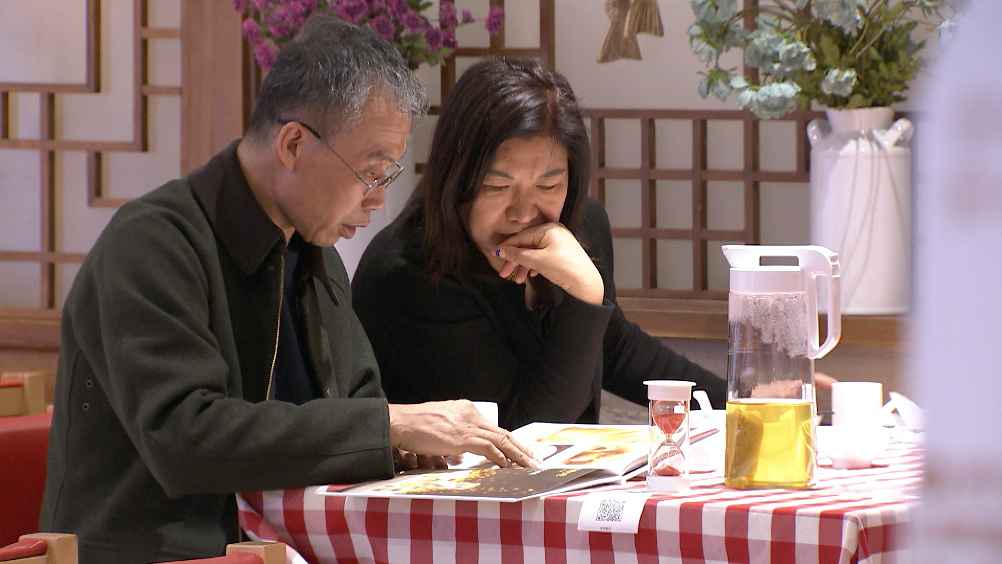
Customers dining at Xibei restaurant after it reopened. /CGTN
Customers dining at Xibei restaurant after it reopened. /CGTN
Fewer customers mean less revenue, yet expenses still have to be paid, including rental, staffing, and raw materials. Cash flow appears to be one of the biggest problems, even for the company with an annual sales revenue of up to 6 billion yuan (about 850 million U.S. dollars). Jia Guolong, chairman and founder of Xibei Group, said in earlier interviews during the past month that his company won't survive for three months if the epidemic continues.
Even though the giant restaurant chain has since obtained financial support, its branches across the country have also tried to minimize the impact from the outbreak and tide over the difficulties by adopting new measures. Chen said her restaurant provided five new set-menu group meals to expand business among corporate clients. With more brand promotions and choices in their online shop, they are also accepting more online orders from individual customers. Take-out revenue has grown by 5 to 7 percent.
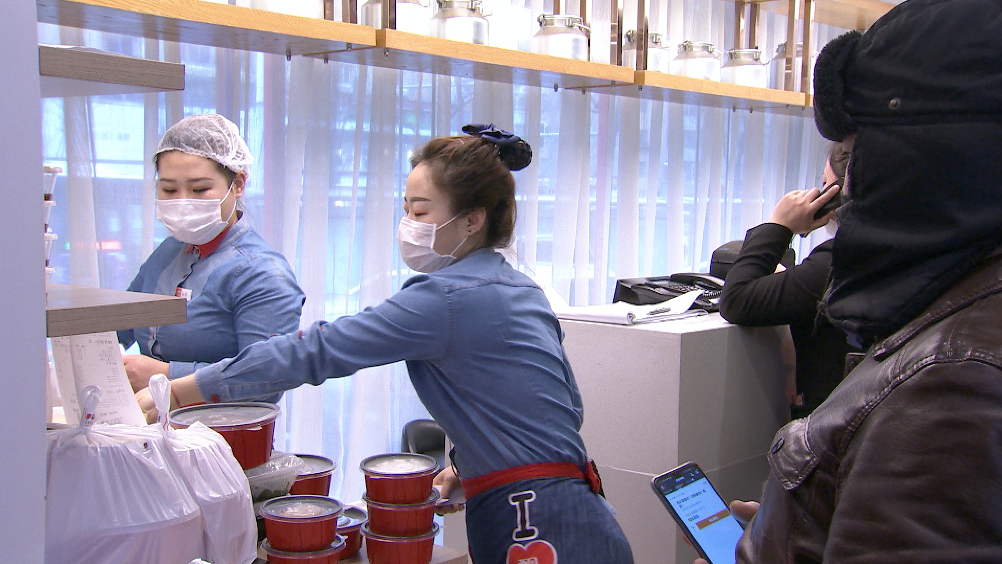
Take-out and delivery services in restaurants. /CGTN
Take-out and delivery services in restaurants. /CGTN
Unlike big catering firms, in these tough times small and medium-sized enterprises can be even more vulnerable. Many neighborhood restaurants in Shenyang serving lunch boxes and fast food have been reliant almost entirely on take-outs and deliveries since the start of the outbreak. But even then, they receive only one-third of their usual orders, which means some have to cut costs, or worse, close down temporarily.

Take-out and delivery services in restaurants. /CGTN
Take-out and delivery services in restaurants. /CGTN
Su Deyan, a manger running a take-out bento shop in Shenyang, said his restaurant used to need about six or seven employees at peak time but now they only have three. "For takeout box lunches, the main cost is still labor. By cutting down on that, given the declining orders, we are able to guarantee other things. I think what we should not sacrifice now is the safety and quality of our food," said Su. He also added that the cost and complexity of online promotion and operation can be much higher than expected, so not every restaurant can smoothly adapt to the new business model.
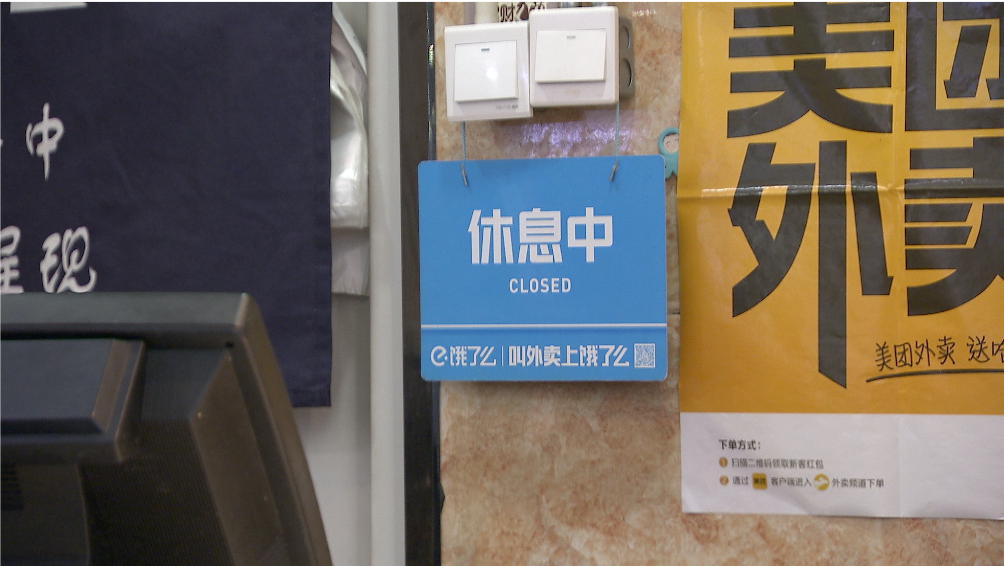
Food stalls closing down at a mall food court. /CGTN
Food stalls closing down at a mall food court. /CGTN
It's been reported that, as a result of the epidemic, 78 percent of Chinese restaurants have lost more than their entire revenue compared with the same period last year. Some believe that an industry reshuffle will soon take place. A food court in a downtown Shenyang shopping mall shows how the catering industry is struggling through these hard times. While it's finally resuming normal operations after nearly two months, five out of the 18 food stalls here remain closed, two of which have terminated their leases.
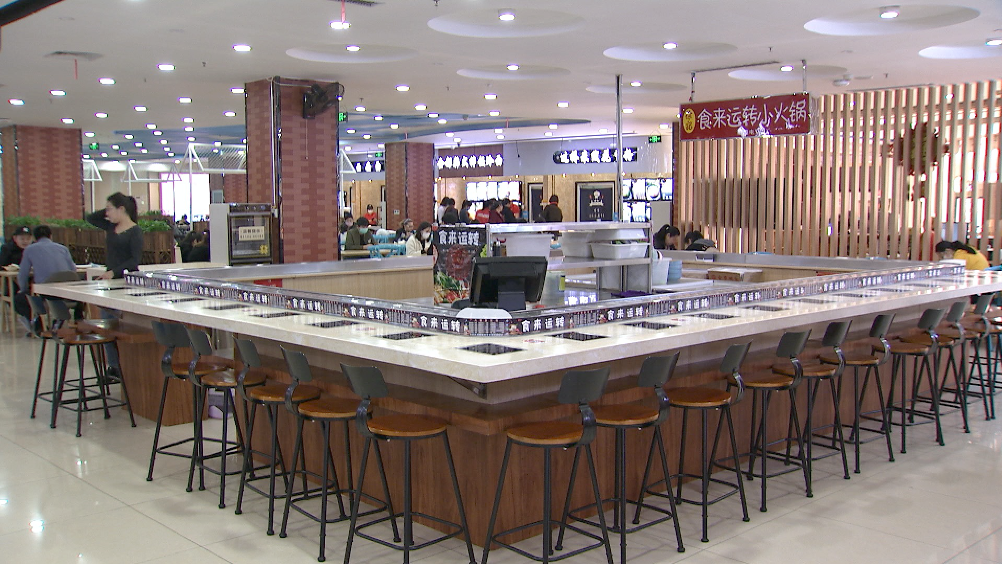
Food stalls closing down at a mall food court. /CGTN
Food stalls closing down at a mall food court. /CGTN
Property owners are actively taking steps to find new merchants, which may turn out be an opportunity for newcomers. "In the past, even if you gave us a certain amount of money you wouldn't be able to enter the food court. But now we will offer promotions and advertising to attract new merchants, as well as lower the entry threshold," said Zhang Bo, manager of the food court. Businesses are also looking forward to more supportive policies that can tide them over, such as spending incentives and tax breaks. While many industry insiders see the post-outbreak period as a real challenge for the industry, they also see it as the darkness before dawn.